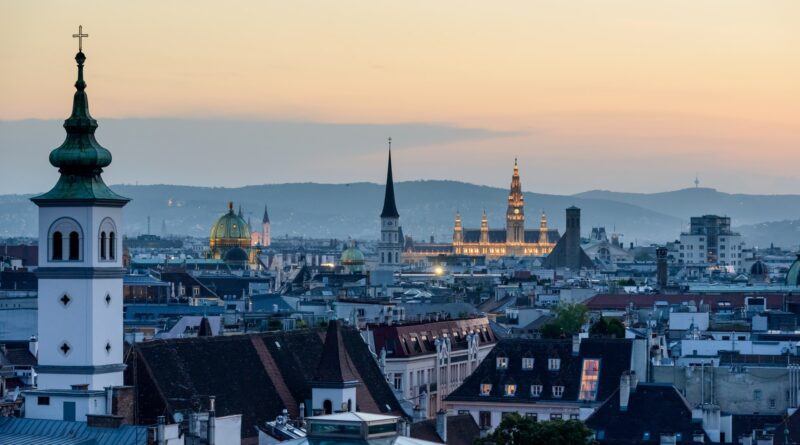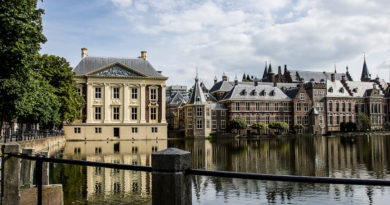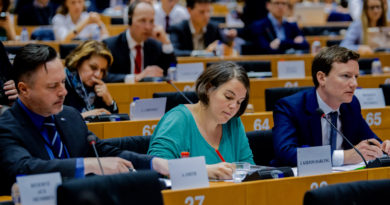Austrians abroad seek to overturn dual citizenship ban
A group of Austrians abroad is seeking to convince the government in Vienna to change the nationality law and allow dual citizenship.
The initiative has been launched by Martin Wallner, an Austrian living in Austin, Texas, after he found out he could not become American without losing his original citizenship.
A start-up entrepreneur, Wallner first went to the USA on a student exchange. After returning to Austria, he moved again to China, the USA, back to Austria and back the USA.
In many ways, he has followed a common path for ‘mobile citizens’: moved abroad as a student, worked in different countries and settled permanently where work and family are. But the next step, becoming a citizen, is proving difficult to achieve.
Austrians are allowed dual citizenship in a limited number of circumstances. Only children who have another citizenship by birth (because they are born elsewhere or from a mixed couple) can keep their multiple nationalities.
Dual citizenship can also be retained “in the interest of the Republic of Austria” and “in the best interest of the child” in the case of minors. Otherwise anyone who voluntarily acquires another citizenship loses the Austrian one.
On top of this, the application of the law is complicated. “The base law leaves a lot to interpretation so each of the nine Austrian federal states has set different rules and little guidance is provided,” Wallner told Europe Street.
“The paradox is that my child will have three citizenships: Austrian from me, Israeli from my partner, and American from the place of birth. But I will never be able to become an American citizen because Austria does not allow me to,” Wallner says.
“The issue is particularly heated in the USA because of the election this year. We wanted to participate but we will be excluded from the vote,” he continues. Hence the desire to do something about it.
Together with fellow Austrians in the USA and Switzerland, Wallner set up the Facebook group Doppelstaatbuerger (dual nationality) to start exchanging information with others in the same situation. They now also have a website, a newsletter and they hold regular videoconferences.
Their aim is to create a community of people engaged on the topic and ask the government to change the law.
They look at the examples of Norway, where the dual citizenship ban was removed at the beginning of the year, and the Netherlands, where an exception has recently been created for Dutch citizens in the UK, if they will be negatively impacted by Brexit.
“The Dutch law does not permit dual citizenship in principle but allows people with a foreign spouse to acquire their nationality. That would already solve 80 per cent of the cases in our group,” Wallner continues.
He says politically there is no opposition to Austrians taking another citizenship, but there is fear of people from other countries naturalising in Austria: a case where the fear of immigration penalizes fellow citizens.
Ahead of the municipal elections in Vienna, on October 11, the group wrote to all parties to test their position on dual citizenship. The Social Democrats (SPÖ), the Greens, the New Austria and Liberal Forum (NEOS), the Socialist Left (LINKS) and pan-European party Volt support a reform of the nationality system. The Conservatives (ÖVP) see possible exceptions, while far right Freedom Party of Austria (FPÖ) does not see such need.
Wallner argues that “more and more people have international lives so it will become normal to have multiple citizenships in the future.”
“We want to participate in the life of the country where we live, we don’t want to be second class citizens. But at the same time we remain committed to our native country. We still love Austria and want to represent it overseas,” he says.
Claudia Delpero © all rights reserved.
The article was published on October 11, 2020, and modified on October 12 with the position of political parties. Photo: Vienna, Austria, by Jacek Dylag on Unsplash.
Europe Street News is an online magazine covering citizens’ rights in Europe. We are fully independent and we are committed to providing factual, accurate and reliable information. We believe citizens’ rights are at the core of democracy and information about these topics should be accessible to all. This is why our website and newsletter are available for free. Please consider making a contribution so we can continue and expand our coverage.





